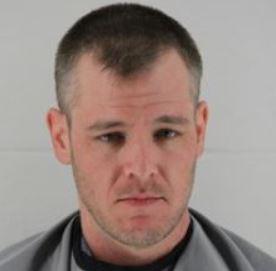
A doctor accused of having sex with several of his patients and exploiting another patient for economic gain is still allowed to practice in Missouri – even after the suspension of his Kansas license.
Brian Patrick Lahey, the accused doctor, is a psychiatrist in Overland Park. Lahey received his medical degree from St. George’s University and completed his residency at the University of Kansas Medical School.
The Kansas Board of Healing Arts issued a consent order April 16 claiming Lahey committed inappropriate acts.
The report claims that Lahey committed “[an] act or acts of sexual abuse, misconduct or other improper sexual contact, which exploited the licensee-patient relationship.”
In response to this order, Lahey agreed to an indefinite suspension of his Kansas medical license. Lahey’s attorney, Nancy Crawford, clarified that this agreement means Lahey acknowledges the board has sufficient evidence to prove he is guilty if he did not offer a defense.
However, Crawford emphasized that these charges are still allegations and not findings.
A source, who is not affiliated with the board, told The Kansas City Star about the complaints cited against Lahey. The first complaint is that Lahey hired a woman to work in his office and then prescribed her painkillers. Multiple complaints say that she overdosed on the pills and, though she survived, had to be taken the hospital in an ambulance.
Lahey told investigators that he began a romantic relationship with this woman but that it was after he was no longer her psychiatrist. There are also complaints that Lahey had a sexual relationship with two other female patients.
Lori Croy, a spokesperson for the Missouri medical board, told the Daily Mail that Lahey’s license is active and does not expire until January 2020.
Lahey’s acts highlight a problem among medical boards across the nation. Licensed doctors can have disciplinary action taken against them in one state but continue to practice in another state, which often does not know about the prior disciplinary sanctions.
In Feb. 2018, the Milwaukee Journal Sentinel and MedPage Today published a study regarding state licensing systems. They found that many doctors who have been disciplined in one state can practice in other states with a clean record.
“At least 500 physicians who have been publicly disciplined, chastised or barred from practicing by one state medical board have been allowed to practice elsewhere with a clean license,” reported the study.
The Milwaukee Journal/MedPage study cited the example of Jay Riseman, a Missouri hospice doctor. If one searches Jay Riseman on the Missouri Division of Professional Registration, there are no signs of any prior disciplinary action or misconduct. Riseman simply appears to be a surgeon whose license does not expire till 2020. Under the section entitled “Current Discipline Status,” nothing is listed for Riseman.
One would never know that Riseman, prior to becoming a licensed doctor in Missouri, had procured more than one dozen malpractice lawsuits in Illinois. Three patients died under Riseman’s care.
“[Riseman is an] imminent danger to the public,” said a state medical board official.
In 2002, the Illinois Board of Medicine put Riseman on indefinite probation. However, Riseman received a license from Missouri in 2008. He also received a license from Kansas in 2009 on the condition that he did not perform surgery, a condition which was later removed.
As of Feb. 2018, Riseman was still working at St. Luke’s Hospital in Kansas City. Currently, one can no longer find Riseman listed as a doctor on the St. Luke’s website and, when one searches “Jay Riseman,” it says his practice is closed.
Though there is a variety of reasons for this problem, some potential causes are a lag in medical bases uploading records or medical boards not having the resources to find information about thousands of doctors on a regular basis.
These two cases are simply a snapshot of a phenomenon that occurs across the country. Numerous investigations have found that doctors whose licenses are revoked in one state can quickly move to another.
The people harmed by this process are the patients. For example, one of Riseman’s malpractice lawsuits says that he did not tell patients he was not a pediatric surgeon – yet he performed unnecessary surgeries on infants.
In one case, Riseman prescribed a drug to a 2 month-old. The dose of the drug was twice what should be given to adults and 10 times what should be given to a child that age. After Riseman prescribed that the dose be given over eight hours, the baby was given the drug and later died.
While there is not one correct solution to this problem, potential solutions have been proposed. A possible solution would be for states to provide more information to the public about license surrenders. For example, state laws in places such as Ohio and Maryland require that records about license surrenders be kept confidential.
As Missouri is already one of the worst states for psychiatric health care, it is crucial that there be measures taken to improve the information patients are given regarding their doctors. As long as patients do not have this information the state of health care in Missouri will only worsen.
